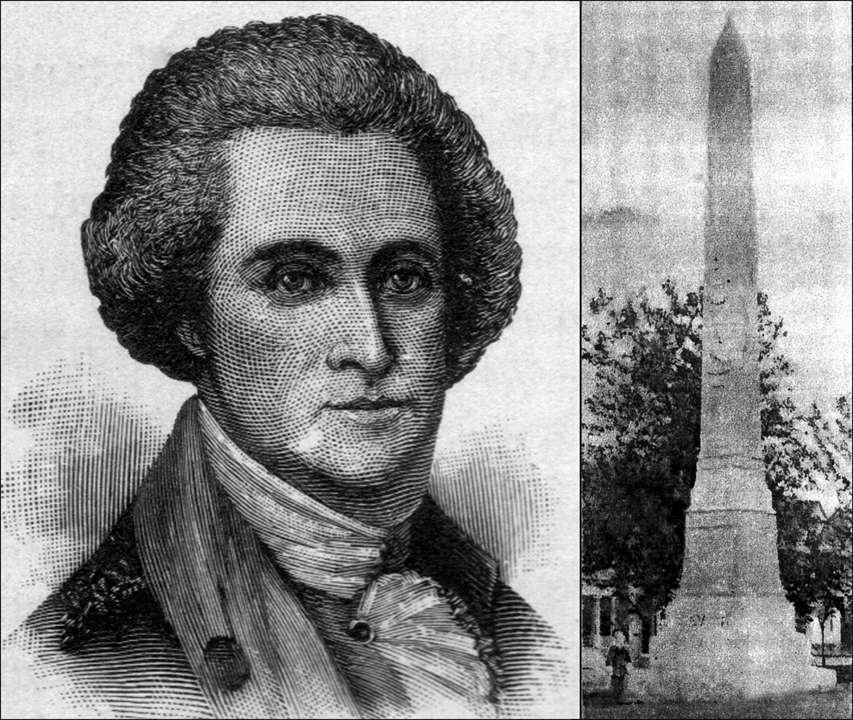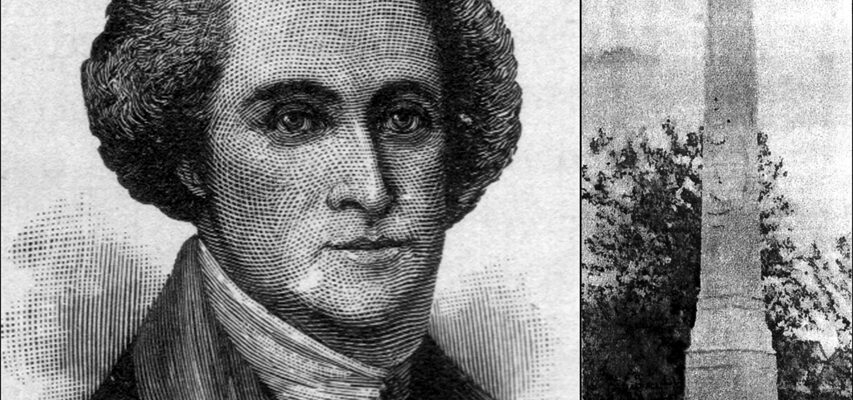John Sevier (1745-1815) is recognized as our state's great pioneer and statesman. He was so popular that, after his first term as governor of Tennessee, the people reelected him to that office as long as the law would permit. Although the limit was six years, after being out of office for two years, he was chosen for three more terms of two years each, giving him a total of 12 years service as governor.
When Sevier was first elected governor, he reasoned that that he would be expected to keep up the exquisite style of entertaining that had been introduced by Governor Blount. Therefore, he built an elegant brick mansion in Knoxville, which was the capital of the State at that time.
However, his financial means soon ran short and, after paying off his work hands, he abandoned the effort. He was too honest a man to risk going in debt. The unfinished house was sold and afterward completed by other parties. A line in the wall where Sevier ceased work was plainly visible by a slight change in color of the brick.
Sevier remained on his farm about five miles south of Knoxville and rode into town on horseback early in the morning to attend to his governor business. In the evening, he returned home in the same fashion. His residence was on the site of an old frontier fort in a hilly and picturesque region. Here he added to his house one log room after another that allowed him to accommodate guests. Although Nolichucky Jack was a poor man, his hospitality knew no bounds, as evidenced by his home always being full of old friends, elderly soldiers, and Indian chiefs.
One of the larger cabins became his reception room. The puncheon floor of this room was, on special occasions, covered with a carpet representing a foreign country. Only once was the carpet allowed to remain in place all night. That was on the occasion of the visit to America by Louis-Philippe and his brothers, the French princes, who were guests of Sevier in 1797.
After serving his last term as governor, Sevier retired to private life. Although advanced age was creeping up on the pioneer and he felt he needed rest, the people disagreed with his assessment and sent him back to Congress where he was elected three times.
In 1815, Sevier was sent by President James Madison to handle matters with the Creek Indians, a task that matched his skills. While on this trip, he died of a fever and was buried near Fort Decatur, Alabama. He was 70 years old and had served his country 52 years. There, on the east bank of the Tallapoosa River, this great man lay in an almost neglected grave for 74 years.

Portrait of John Sevier. Impressive monument dedicated to Sevier after his remains were transported from Alabama to the Knox Courthouse in Knoxville
In 1889, famed area resident, Governor Robert “Our Bob” Taylor arranged to have Sevier's remains brought back to Tennessee where he could rest among his people. He was transported to Knoxville, which had been the capital of Tennessee while Sevier was governor. Thousands of people met the procession and were present at the funeral. The casket was then placed under a beautiful monument in the courthouse grounds.
There is a story that relates just how popular Sevier was among the people. An old man and his young son once had a chance encounter with the governor. While they were at church one Sunday, a man, out of breath, ran up and noted that “Nolichucky Jack” was coming up the road. Everybody, including the minister, ran to see him. Although the church was not specifically identified, it is known that it was in East Tennessee during a time when Sevier was on his way to Virginia.
Soon Tennessee's hero rode up with a large body of men surrounding him. He had a good memory and began shaking hands and called people by name. He knew the boy's father and greeted him heartily. Since he had never met the lad, Sevier placed his hand on the little fellow's head and asked him his name. The father spoke up saying that it was his son and offered his name. The boy was proud to be noticed by the great man. As Sevier rode off, the boy looked up into his father's face and innocently spoke these words, “Why, father, Chucky Jack is only a man. “Those youthful innocent words said it all.

Comments are closed.